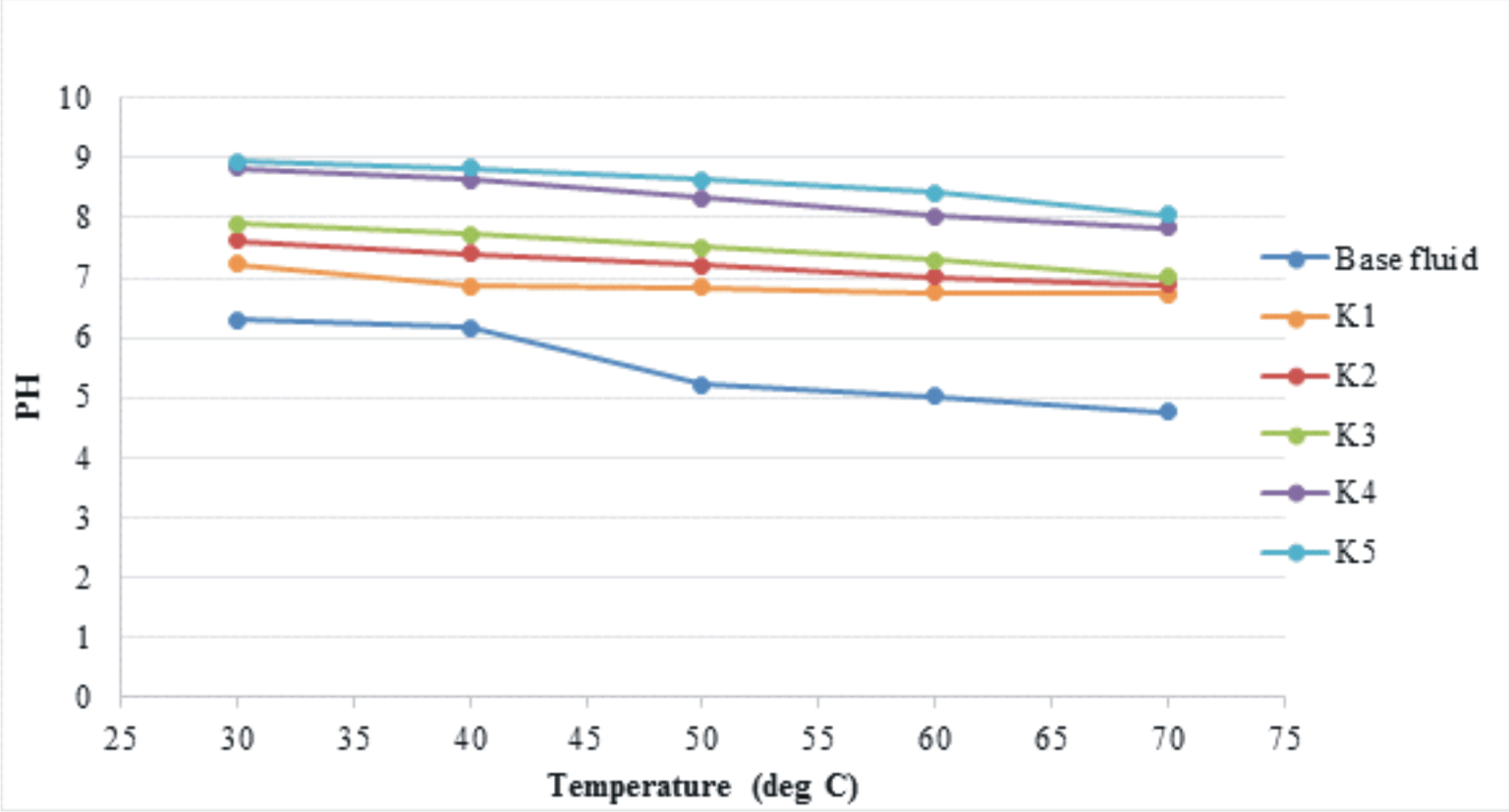Effects of volume fraction of palm kernel shell nanoparticles on the pH and electrical conductivity of Ethylene Glycol (EG)/deionised water
Keywords:
Nanofluid; palm kernel shell, ethylene glycol; pH; electrical conductivityAbstract
Comprehensive research has been carried out on the synthesis of nanofluid produced from metals, nonmetals and their various oxides. But, little or no work has been carried out using bio-based nanoparticles. The need for the use of bio-based nanoparticles in nanofluids research is important to reduce over-dependence on toxic nanoparticles. Bio-based materials like palm kernel shell (PKS) constitute environmental waste, its conversion to useful products for engineering application will go a long way in solving environmental problems. In this paper, nanoparticles was produced from Palm kernel shell (PKS) using a ball-milling machine. The PKS nanoparticles with an average size of 200 nm were dispersed in a mixture of ethylene glycol (EG)/ deionised water (50:50) base fluid up to 1.5% of the volume fraction (0.3%, 0.6 %, 0.9 % 1.2 % and 1.5%). The pH and electrical conductivity of PKS–deionised water and EG (50:50) were investigated for temperature ranging from 30 to 70◦C. The obtained results showed that the pH and the electrical conductivity increased as the volume fraction of the PKS nanoparticle was increased from 0.3 to 1.5%. However, the pH decreased with an increase in the temperature while the electrical conductivity increased with an increase in the volume fraction and temperature. This shows the effects of palm kernel shell nanoparticles and temperature on the PH and electrical conductivity of the palm kernel shell nanofluid. The experimental results shows the effects of palm kernel shell nanoparticles and temperature on the pH and electrical conductivity of the palm kernel shell nanofluid.


